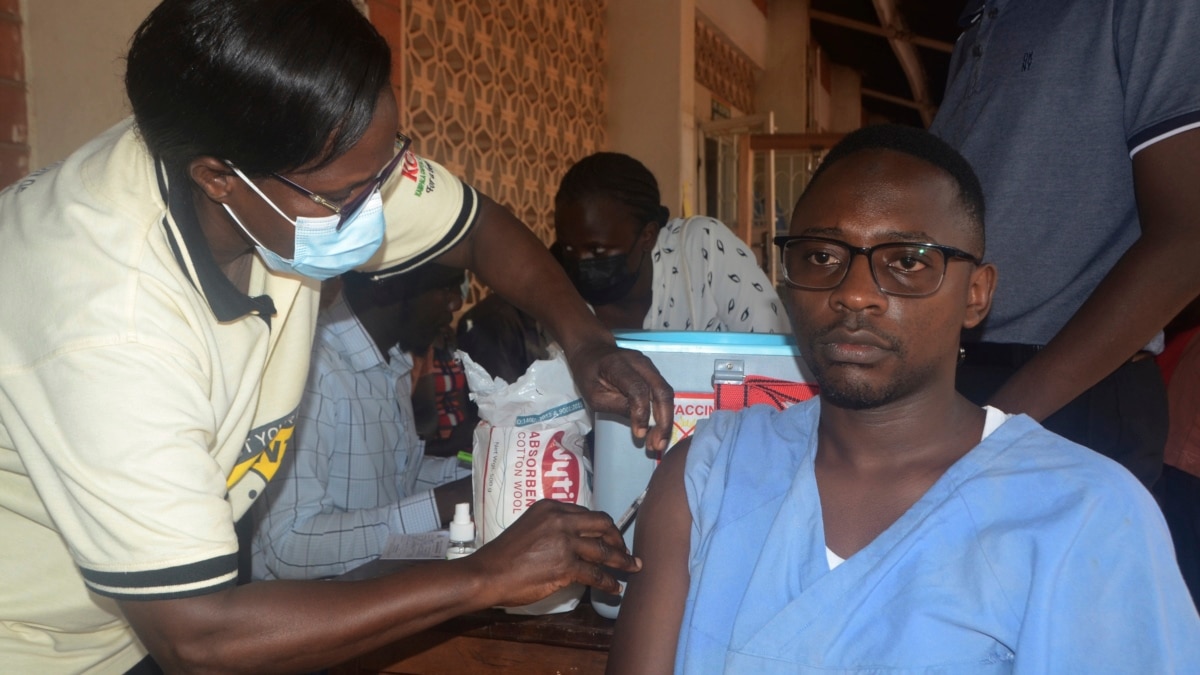The East African country of Uganda has begun a nationwide yellow fever vaccination campaign.
The aim is for the country to protect its population against the viral disease. Yellow fever is spread by insects called mosquitoes.
Dr. Michael Baganizi is an official in charge of immunization at the health ministry. By the end of April, Ugandan officials had vaccinated 12.2 of the 14 million people targeted, he said.
Baganizi added that Uganda will now require everyone traveling to and from the country to have a yellow fever vaccination card.
Ugandan officials hope the requirement will push more people to get the yellow fever shot. Many people in Uganda have concerns about getting the vaccine. That worries health care providers.
The vaccine involves one injection. It is available at no cost to Ugandans between the ages of one and 60. There are vaccination centers in the capital, Kampala. Places offering the vaccine include schools, universities, hospitals, and local government buildings.
The Associated Press (AP) reports that, before the current campaign, Ugandans usually paid $27 to get the yellow fever vaccination at private health centers.
Uganda has more than 45 million people. It is one of 27 countries in Africa that is considered at “high risk” for yellow fever outbreaks. The World Health Organization (WHO) says there are about 200,000 cases and 30,000 deaths around the world from the disease.
Uganda’s most recent outbreak was reported earlier this year in the central areas of Buikwe and Buvuma.
Yellow fever is caused by a virus spread by the bite of infected mosquitoes. Most infections do not have symptoms. The WHO says symptoms can include a high body temperature, muscle pain, head pain, loss of willingness to eat, upset stomach, and vomiting.
Uganda’s vaccination program is part of a worldwide effort launched in 2017 to eliminate yellow fever by 2026. That goal was set by the WHO and its partners such as the U.N. children’s agency. The aim is to protect almost one billion people in Africa and in North and South America.
Last year, a study said that 185 million people in high-risk African countries had been vaccinated by August 2022.
In Uganda, most people get the yellow fever vaccination when they are traveling to countries such as South Africa. South Africa requires proof of vaccination upon arrival in the country.
James Odite is a nurse working at a private hospital, which also is a vaccination center in an area of Kampala. He told the AP that hundreds of shots remained unused after the yellow fever vaccination campaign closed. They might be used in a future mass campaign.
Some people wonder if “the government wants to give them expired vaccines,” Odite said.
Baganizi said Uganda’s government has spent money on community “sensitization” programs. In these programs, officials tell people that vaccines save lives.
I’m Gregory Stachel.
Risdel Kasasira reported this story for The Associated Press. Gregory Stachel adapted it for VOA Learning English.
________________________________________________
Words in This Story
immunization – v. to give (someone) a vaccine to prevent infection by a disease
symptoms – n. a change in the body or mind which indicates that a disease is present
vomit – v. to have the food or liquid that is in your stomach come out through your mouth because you are sick
eliminate – v. to get rid of (something)
expired – v. to no longer be valid after a period of time









